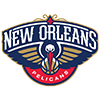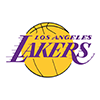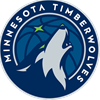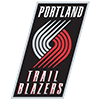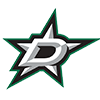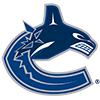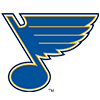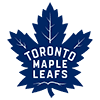For the third year in a row I'll be buying into a whole lot of MFL10 best ball drafts, and I'll use this column to keep track of market developments while providing my own thoughts on various occurrences. I'm nearly concluded with my current MFL10 draft, the sixth one I've done, and in next week's article I'll tally up my current player share counts and examine the roots of my tendencies.
For this week's entry, however, I will focus on my current draft and specifically the situation with Nick Chubb, who I selected in the seventh round.
1.04 Antonio Brown, WR, PIT
2.09 Adam Thielen, WR, MIN
3.04 Joe Mixon, RB, CIN
4.09 Derrick Henry, RB, TEN
5.04 Sony Michel, RB, NE
6.09 Greg Olsen, TE, CAR
7.04 Nick Chubb, RB, CLE
8.09 DeVante Parker, WR, MIA
9.04 Rishard Matthews, WR, TEN
10.09 Jimmy Garoppolo, QB, SF
11.04 Josh Doctson, WR, WAS
12.09 Mitchell Trubisky, QB, CHI
13.04 Eli Manning, QB, NYG
14.09 Philadelphia DEF
15.04 Chargers DEF
16.09 Luke Willson, TE, DET
17.04 Willie Snead, WR, BAL
18 .09 Jake Butt, TE, DEN
In a lot of ways this lineup is incredibly typical of me: I'm heavy on shares of Brown, Thielen, Parker, Matthews, Garoppolo, Doctson, and Snead this year, and I'd guess I actually have Trubisky and Willson on a vast majority of my lineups. In other ways this lineup is a bit of a change for me.
The perhaps most notable change is the selection of Chubb, who in the seventh round (76th overall) marks my first share of the rookie second-round pick out of Georgia. More generally, selecting four running backs in the first seven rounds is a change for me – to this point I've been more likely to select four receivers in that span. These two changes are connected, traceable to the fact that I specifically resolved to acquire some Chubb shares before training camp. Duke Johnson will have at least his same role as last year, but if Chubb can grab the work that went to Isaiah Crowell, I'd expect borderline RB1 production in that scenario.
Chubb is a player in a strange position, and responsibly fitting him onto a roster isn't necessarily easy. Chubb's ceiling is that of a league-winning RB1, but his floor is that of an RB4. His price typically is not that of an RB4, on the other hand, as his MFL10 ADP since June 1 is at 81.24, generally landing him in the seventh round. So if you want Chubb shares, your options are to either protect yourself against his wide outcome range by rapidly selecting running backs early, allowing you to add Chubb as a backup, or to rely on him as an RB2/RB3-type and chalk it up to GPP strategy. The latter approach makes sense, especially if you're playing in a big volume of best ball leagues and do a good job of monitoring your share percentages. The former is the route I took with this league.
By getting Chubb as my RB4, I stand to benefit if his best-case scenario occurs, yet if Chubb never pushes aside Carlos Hyde, then hopefully Mixon, Henry, and Michel do enough that it doesn't matter. But is it worth it? Even if Chubb's best-case scenario hits, is that the most efficient use of my seventh-round pick if Mixon, Henry, and Michel all hit this year?
I don't have a confident answer to that. I do think things turned out well in this scenario – selecting Chubb didn't come at the expense of my wide receiver rotation since I'm fully comfortable with Parker, Matthews, and Doctson as my WR3/4/5. But it took a threaded needle to secure that outcome, and I'd probably feel stupid right now if I was stuck with Nelson Agholor and Kenny Golladay instead of Parker and Matthews.
I think my verdict in the meantime is that I'm going to refrain from specifically looking to add Chubb shares unless his ADP dips a bit. I'm not aware of anyone in the industry who's higher on Chubb than I am, so this is a painful conclusion to reach. If he has a big season and I don't benefit somehow, I'll hate myself for it. Alvin Kamara was a league-winner last year despite opening the season in a similarly crowded backfield, but he was going a few rounds later than Chubb does. I'll be prepared to invest heavily if Chubb's stock slips to a similar point.
For now I'm probably going to resist Chubb in the first seven rounds. Even this resolution makes me anxious – I'm a huge Chubb fan and I basically expect him to push Hyde out of the picture at some point this year. I'm just not sure enough in that outcome to pay up a whole lot right now.
What I am sure about is that Chubb is better than Hyde right now. I'm sure Chubb was better than Hyde three years ago, too. It's not that I think Hyde is bad – he's a useful pure runner and probably no worse than average for the most part – but Chubb is a beast. Georgia didn't miss a beat when Todd Gurley tore his ACL in 2014 because Chubb, then a true freshman, was there to step in and torch the SEC for 1,547 yards (7.1 YPC) and 14 touchdowns. At 5-foot-11, 227 pounds, Chubb has a dense build and low center of gravity that lends itself to rare anchor strength, and this power comes at no expense of his nimbleness. Chubb is adept at withstanding a blow and then quickly hopping through debris till he finds open field. His 4.52-second 40-yard dash doesn't qualify as safety-splitting speed, but it's still a great time for someone of his build. Although he's a heavy back, Chubb is a playmaker, not a plodder.
If Chubb doesn't push Hyde out of the way, I think team politics would be the reason for that outcome. This is a fair concern, though. While Cleveland's three-year, $15.25 million deal with Hyde isn't a serious commitment, and one they might have never made if they knew they'd be able to draft Chubb, they've probably spent enough on Hyde that it's in their interest to give him work to generate a trade market if nothing else. And to be fair, Hyde is still pretty good on his own part, which means it wouldn't be outrageous if the Browns resolved to work Chubb in slowly.
Either way, Chubb's price is high enough that to capitalize on him requires meeting a series of conditions that are easily missed. It's not that I find the other running backs in Chubb's range to be much safer – I'm not really looking to add Marshawn Lynch (84.18), Aaron Jones (85.79), Kerryon Johnson (88.1), or Marlon Mack (89.94) in this range, either – but I'm certain that I'd rather have wideouts like Jamison Crowder (83.18), Marquise Goodwin (87.86), and DeVante Parker (92.53). Chubb's ADP would ideally slide to the eighth or ninth round, allowing me to get both him and one of those wideouts I'd currently need to pass on to land Chubb.
Otherwise, staying on the subject of Cleveland's backfield, you would be correct to guess I have no interest in Hyde at a recent ADP of 69.29. I'm just not sure what anyone is thinking with that one. I probably wouldn't pick Hyde until at least the 10th round. I'm a longtime fan of Duke, however, so I might find myself acquiring a few more shares if he slips just a bit further than his recent ADP of 77.9.








